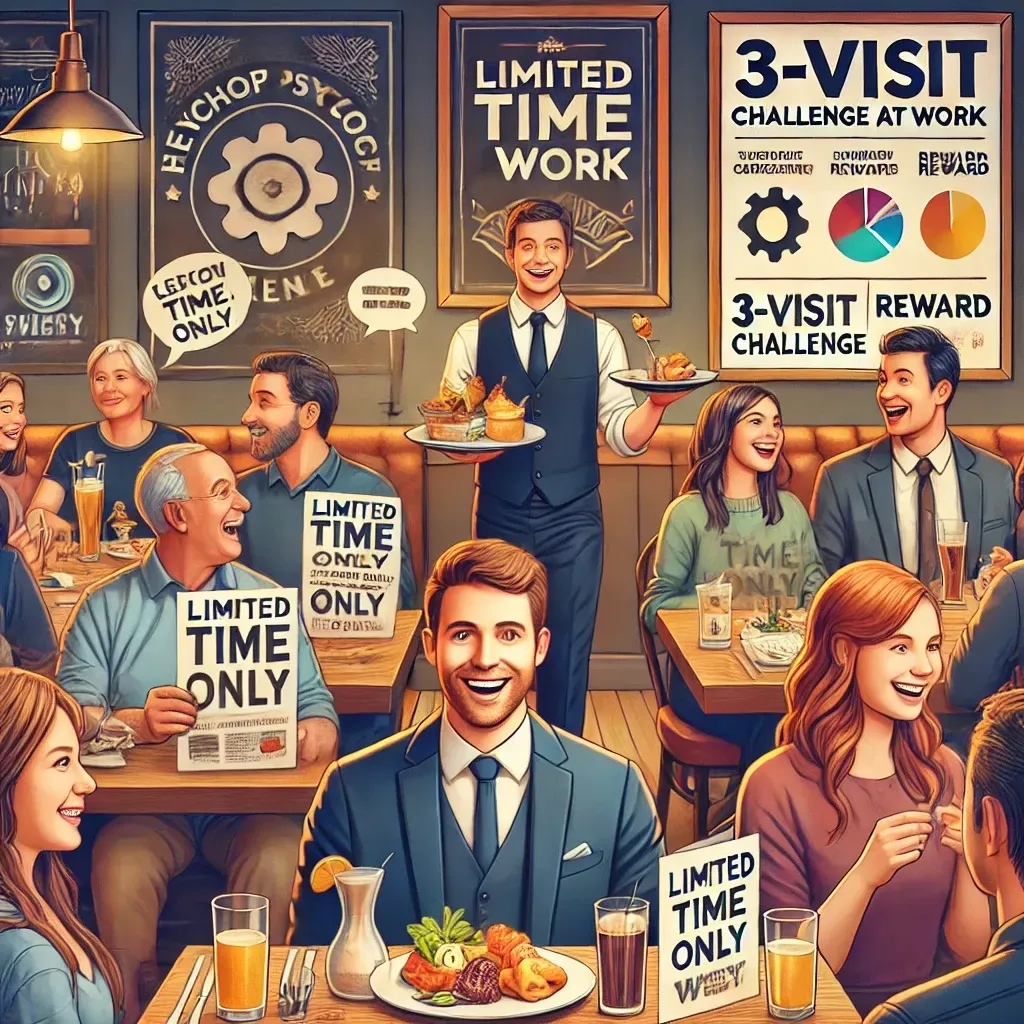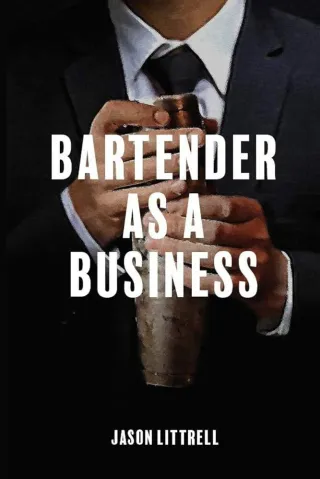

Hi, I'm Jason.
For 20 years, I've helped bar and restaurant owners level up by building communities of guests that love coming back.
Get the OpsNerd newsletter:

Behavioral Psychology Hacks to Keep Guests Coming Back for More
Have you ever wondered why some bars, restaurants, and hotels always seem to have a loyal following of guests who return time and time again? It’s not just about great food, drinks, or ambiance. The secret often lies in understanding the psychology behind guest behavior. By using principles from behavioral psychology, hospitality operators can create habit-forming experiences that guests can’t resist. Here are some powerful psychological hacks to keep your guests coming back for more.
1. Leverage the Power of Loss Aversion
People are more motivated to avoid losses than to gain something of equal value. In hospitality, this principle can be used to create a sense of exclusivity or urgency. For example, offering limited-time menu items or exclusive membership perks makes guests feel they’re missing out if they don’t return. Loss aversion can also be tapped into through loyalty programs that remind guests of the benefits they’re at risk of losing if they don’t visit frequently.
Practical Tip: Create time-limited offers or emphasize the exclusivity of your loyalty rewards. Phrases like “Don’t miss out!” or “Only available for a limited time!” can be powerful motivators.
2. Use the Endowment Effect to Your Advantage
The endowment effect is a psychological phenomenon where people value things more highly when they feel ownership of them. In hospitality, you can make guests feel a sense of ownership by personalizing their experience. Remembering a guest’s favorite drink or offering personalized menu recommendations can make them feel like they have a special stake in your establishment.
Practical Tip: Use guest data to personalize service. Even simple gestures like addressing guests by name or recalling their favorite orders can make a lasting impression.
3. Create Habit-Forming Experiences with the 3-Visit Rule
Research shows that forming a habit often requires repeating an action three times. Apply this concept by giving guests a compelling reason to return at least three times. This could be a series of events, a progressive loyalty program, or a special offer that incentivizes repeat visits. Once a guest has visited multiple times, they’re more likely to make your venue a regular part of their routine.
Practical Tip: Develop a “3-Visit Challenge” where guests receive a unique reward after their third visit. Make it fun and engaging to encourage them to complete the challenge.
4. Use Social Proof to Build Trust
Humans are inherently social creatures, and we often look to others to determine what’s good or bad. This is why online reviews, social media posts, and influencer endorsements are so powerful. By showcasing positive guest experiences and reviews, you can build trust and attract new guests while reinforcing the loyalty of existing ones.
Practical Tip: Display your best guest reviews prominently in your venue and on your website. Encourage happy guests to share their experiences on social media and tag your business.
5. Apply the Principle of Reciprocity
Reciprocity is the idea that people feel compelled to return a favor. In the hospitality world, this could mean offering a small, unexpected gift, like a complimentary appetizer or drink, to make guests feel valued. When guests receive something for free, they’re more likely to return the favor by coming back, leaving a good review, or telling their friends about your venue.
Practical Tip: Surprise your guests with a small token of appreciation, like a complimentary amuse-bouche or a free drink on their birthday. It doesn’t have to be costly to be effective.
6. Tap into the Scarcity Principle
The scarcity principle states that people perceive things as more valuable when they are scarce or in limited supply. You can use this to create urgency around events, special menu items, or limited-edition merchandise. Phrases like “Only 10 spots left!” or “Limited edition—get it while it lasts!” can drive immediate action.
Practical Tip: Use scarcity marketing tactics to promote special events or exclusive menu items. The fear of missing out (FOMO) is a powerful motivator.
Final Thoughts: Make Psychology Work for You
By understanding and applying these behavioral psychology principles, you can create memorable guest experiences that keep people coming back. These hacks are not about manipulating guests but rather about designing experiences that align with human nature. The more you can make guests feel valued, special, and connected to your brand, the more loyalty you’ll inspire.
Ready to put these psychology hacks into action? Start with one or two strategies and see how they impact your guest experience.
Who is Jason Littrell?
Jason Littrell is a seasoned cocktail maker, bar consultant, event producer, speaker, author, and brand marketing expert with over a decade of experience in the hospitality industry.
What services does Jason Littrell offer?
Jason offers a range of services including bar consultancy, cocktail menu development, staff training, event production and management, keynote speaking, educational workshops, and brand marketing strategies in NYC, 100% free of charge. For more details, please use the chat widget or contact form.
Can Jason Littrell help in designing and setting up a new bar?
Absolutely. Jason specializes in bar consultancy, including design, menu creation, staff training, and operational efficiency, tailored to the unique needs of each client.
As a speaker, what topics does Jason typically cover?
Jason speaks on a range of topics including cocktail culture and history, bar and hospitality industry trends, brand building, and customer engagement strategies.
Has Jason Littrell authored any books or articles?
Yes, Jason is the author of Bartender as a Business, and contributed to several publications in the field of cocktails and hospitality.

How does Jason approach brand marketing in the hospitality sector?
Jason combines his deep industry knowledge with innovative marketing techniques to create compelling brand narratives and engagement strategies that resonate with target audiences.
What is Kinetic Management Systems?
KMS is the business Jason owns that implements hospitality management systems for sales, marketing HR, and operations. This site is built with KMS, and if you call any of the phone numbers, fill out any of the forms, engage with the chat, you're engaging with KMS systems. For more info, check out kmsops.com
What makes Jason’s approach to cocktail making and bar consultancy unique?
Jason's approach is rooted in a deep understanding of both the art and science of cocktail making, combined with a keen insight into current trends and customer preferences, making his consultancy highly effective and personalized.

